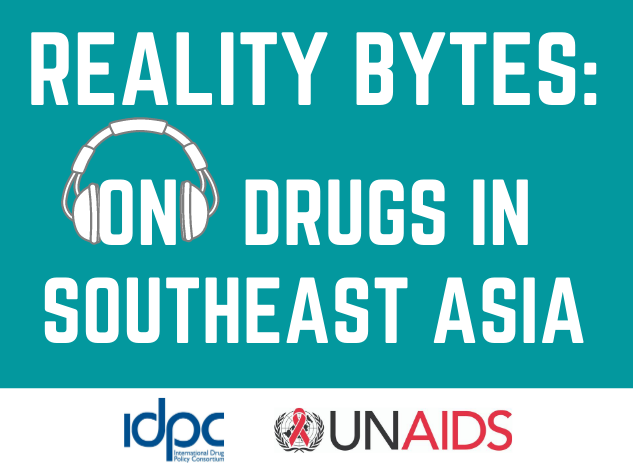Expert Advisory Group
The UNAIDS – UNODC Asia-Pacific Expert Advisory Group on Compulsory Facilities for People Who Use Drugs in East and Southeast Asia was established in August 2020. Comprising 11 members* with a broad range of backgrounds in academia, civil society, government, and lived experience of drug use, the group is tasked with informing and strengthening advocacy on the transition from compulsory treatment and rehabilitation towards voluntary, community-based drug dependence treatment, harm reduction and social support services.
The key objectives of the Expert Advisory Group are:
- Serve as expert resources for UNAIDS and UNODC on the topic of compulsory facilities for people who use drugs;
- Share expertise, research and publications to strengthen the advocacy towards alternatives to compulsory treatment through the detention of people who use drugs;
- Keep UNAIDS Regional Office for Asia and the Pacific and UNODC Regional Office for Southeast Asia and the Pacific abreast of emerging trends around compulsory facilities for people who use drugs;
- Provide UNAIDS Regional Office for Asia and the Pacific and UNODC Regional Office for Southeast Asia and the Pacific with practical, evidence-informed and human rights-based advice on facilities for people who use drugs;
- Participate in the development of and/or review of UNAIDS/UNODC policy, strategy and advocacy documents and other materials around facilities for people who use drugs.
Expert Advisory Group Co-Chairs
- Ma. Inez Feria (Philippines)
- Sangeeth Kaur (Malaysia)
Expert Advisory Group Members
- Apinun Aramrattana (Thailand)
- Robert Ali (Australia)
- Ivanhoe Escartin (Philippines)
- Sam Nugraha (Indonesia)
- Riza Sarasvita (Indonesia)
- Wan Nanda (Myanmar)
- Noy Souliyaseng (Lao People’s Democratic Republic)
- Do Van Dung (Viet Nam)
- Zunyou Wu (China)
The Expert Advisory Group has published a discussion paper in January 2022 exploring promising examples supporting the transition toward voluntary, community-based treatment, harm reduction and support services in China, Indonesia, Lao People’s Democratic Republic, Malaysia, Myanmar, the Philippines, Thailand and Vietnam, and outlining immediate government actions needed.
“Few countries have lived up to previous political commitments to eliminate reliance on compulsory facilities and replace them with a continuum of voluntary community-based treatment and complementary health, harm reduction and social support measures that focus on achieving sustained positive health outcomes for people who use drugs. As the Member States in East and Southeast Asia reflect on progress made towards the transition since 2015, the Expert Advisory Group calls for reinvigorated public health- and human rights-based approach to drug use and dependence.”
Read the Expert Advisory Group’s discussion paper, “Voluntary community-based alternatives”
“Removing criminal penalties for drug use and related offences would address a key structural determinant of health and drug-related risk, reduce overcrowding in closed drug detention settings, and free up resources to expand effective treatment responses for people who are dependent on drugs. In parallel, a continuum of services designed for both people who use drugs and people with drug use disorders is needed that range from harm reduction interventions, such as needle syringe programmes and opioid agonist treatment, to outreach services, brief interventions, psychosocial support, and social reintegration initiatives.”
Read the Expert Advisory Group’s Comment in collaboration with the Lancet Commission on Health and Human Rights, “End compulsory drug treatment in the Asia-Pacific region” (The Lancet, 12 January 2022)
*Note: Members of the Expert Advisory Group express their views in an independent capacity and do not formally represent any particular constituency, nor do they officially represent their government or any organization or institution with which they may be affiliated. Experts are appointed jointly by the Joint United Nations Programme on HIV/AIDS (UNAIDS) and the United Nations Office on Drugs and Crime (UNODC) to provide independent advice. The position is honorary, and the Experts are not members of staff of the United Nations nor paid for their work.
 UNAIDS Asia-Pacific
UNAIDS Asia-Pacific 


